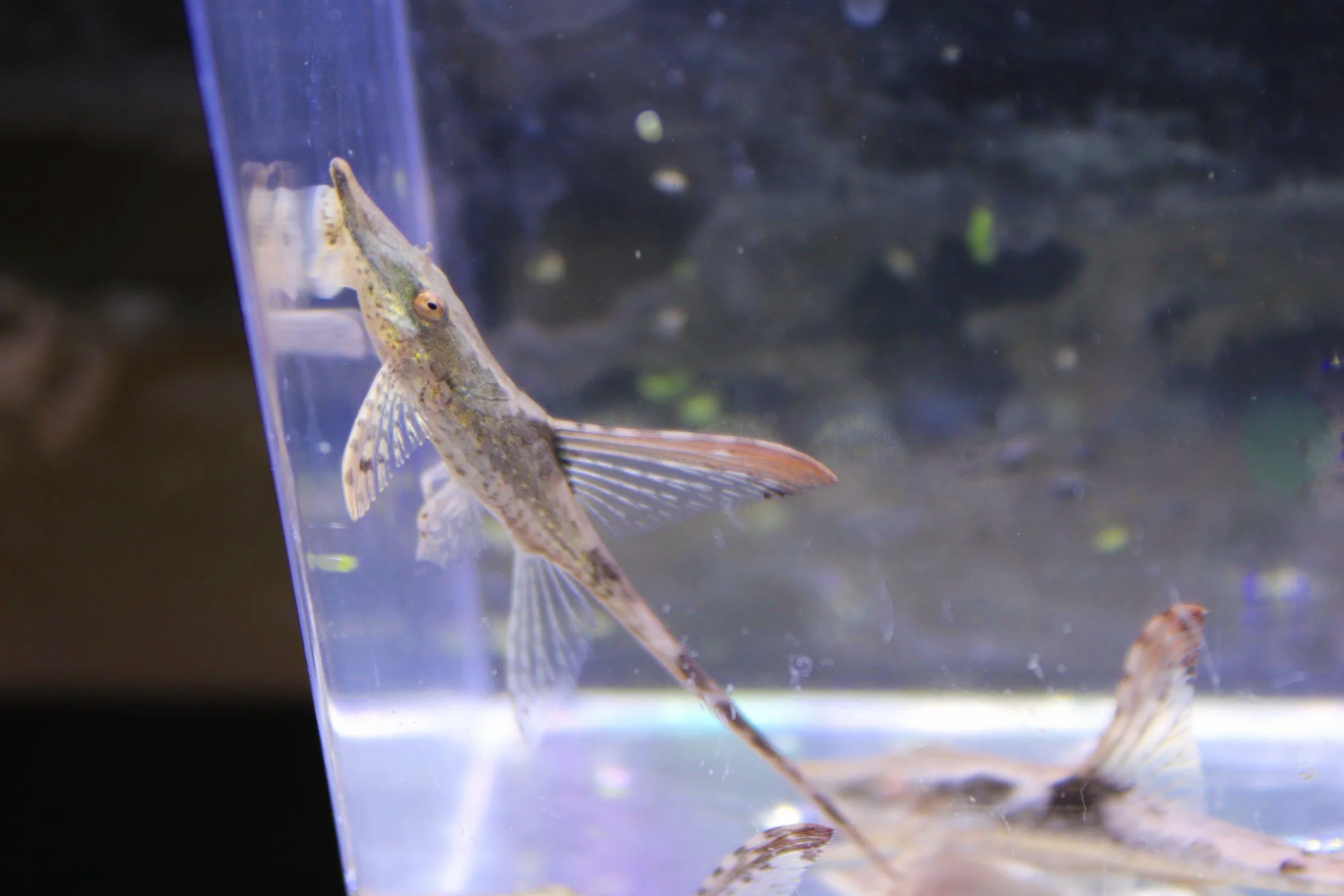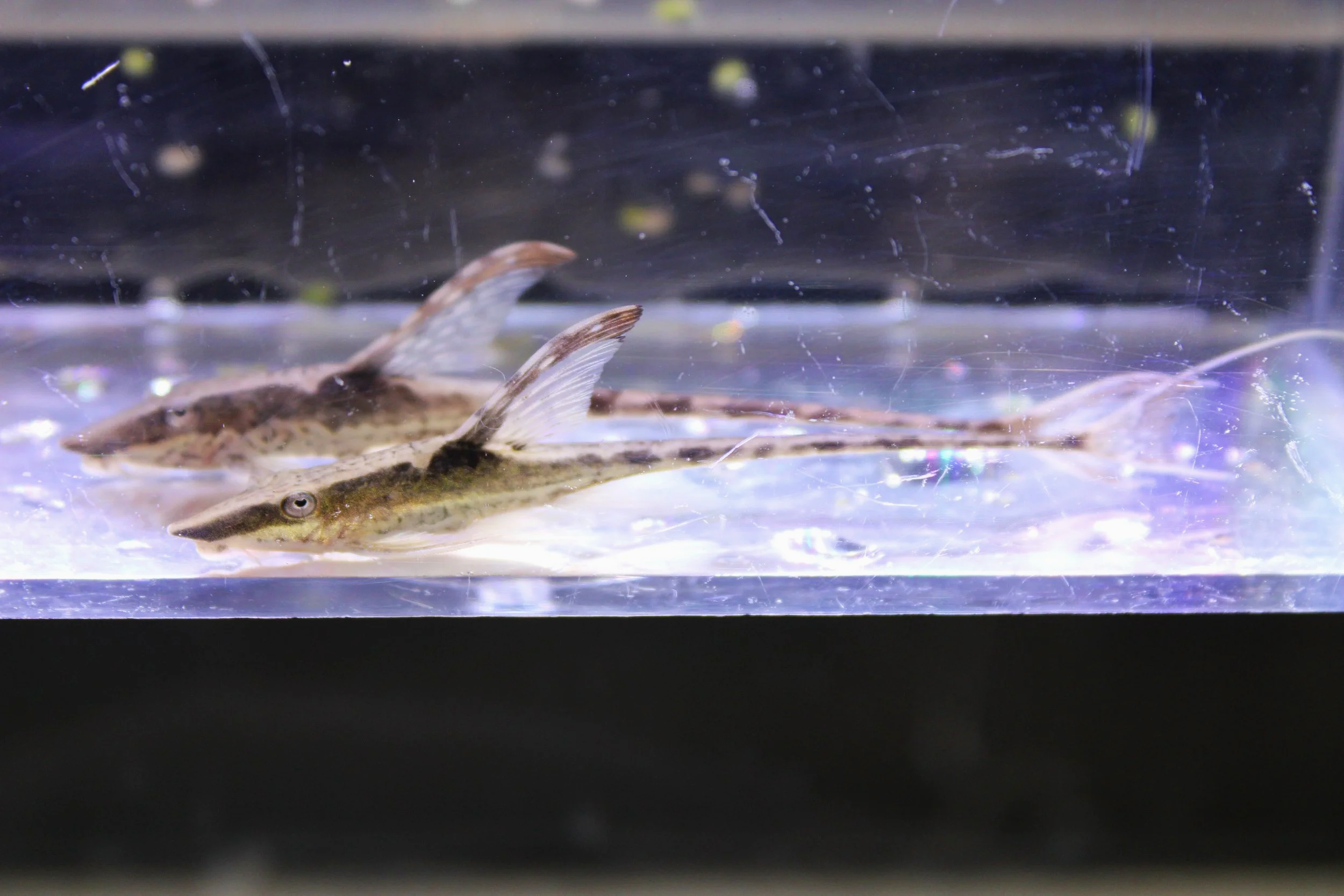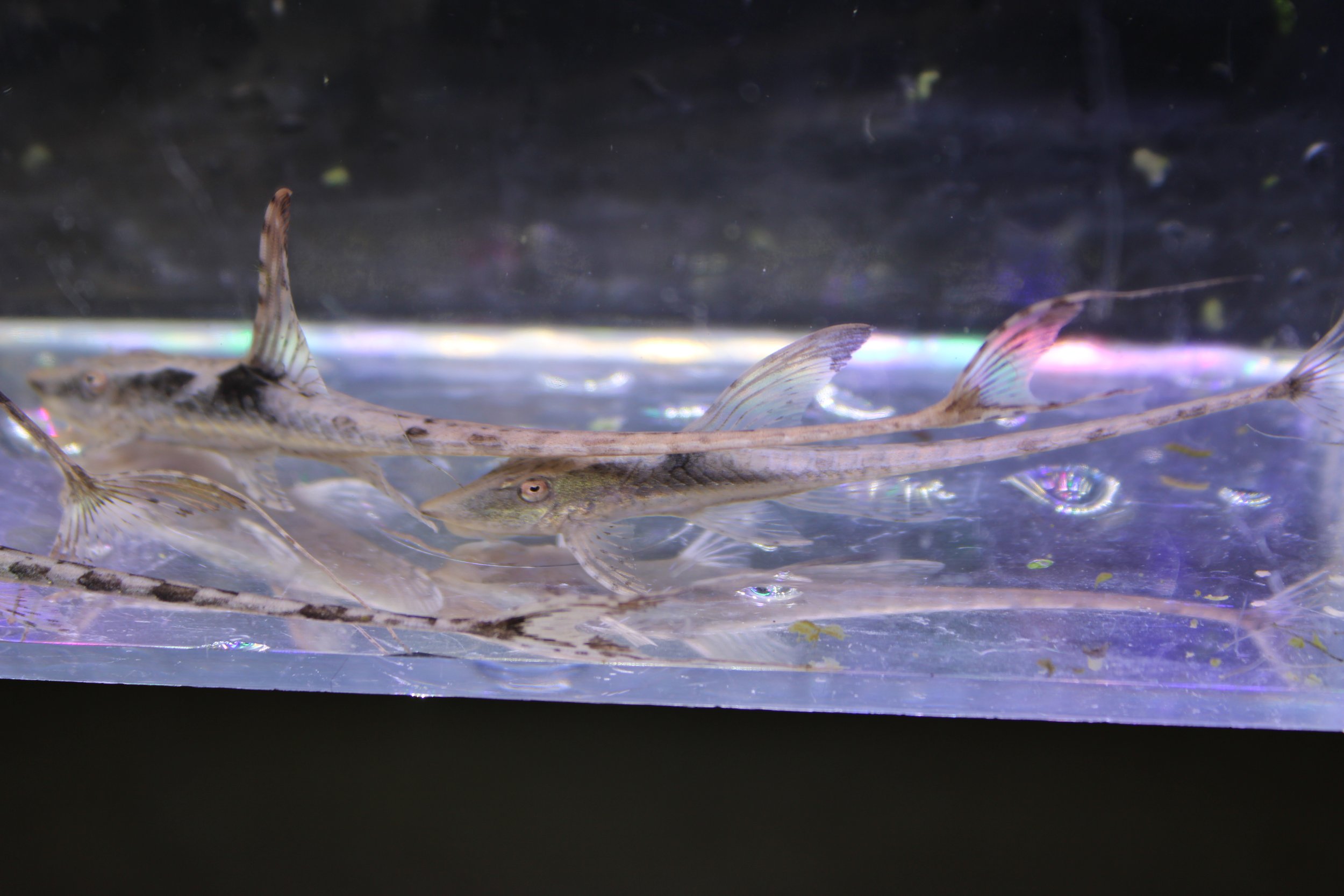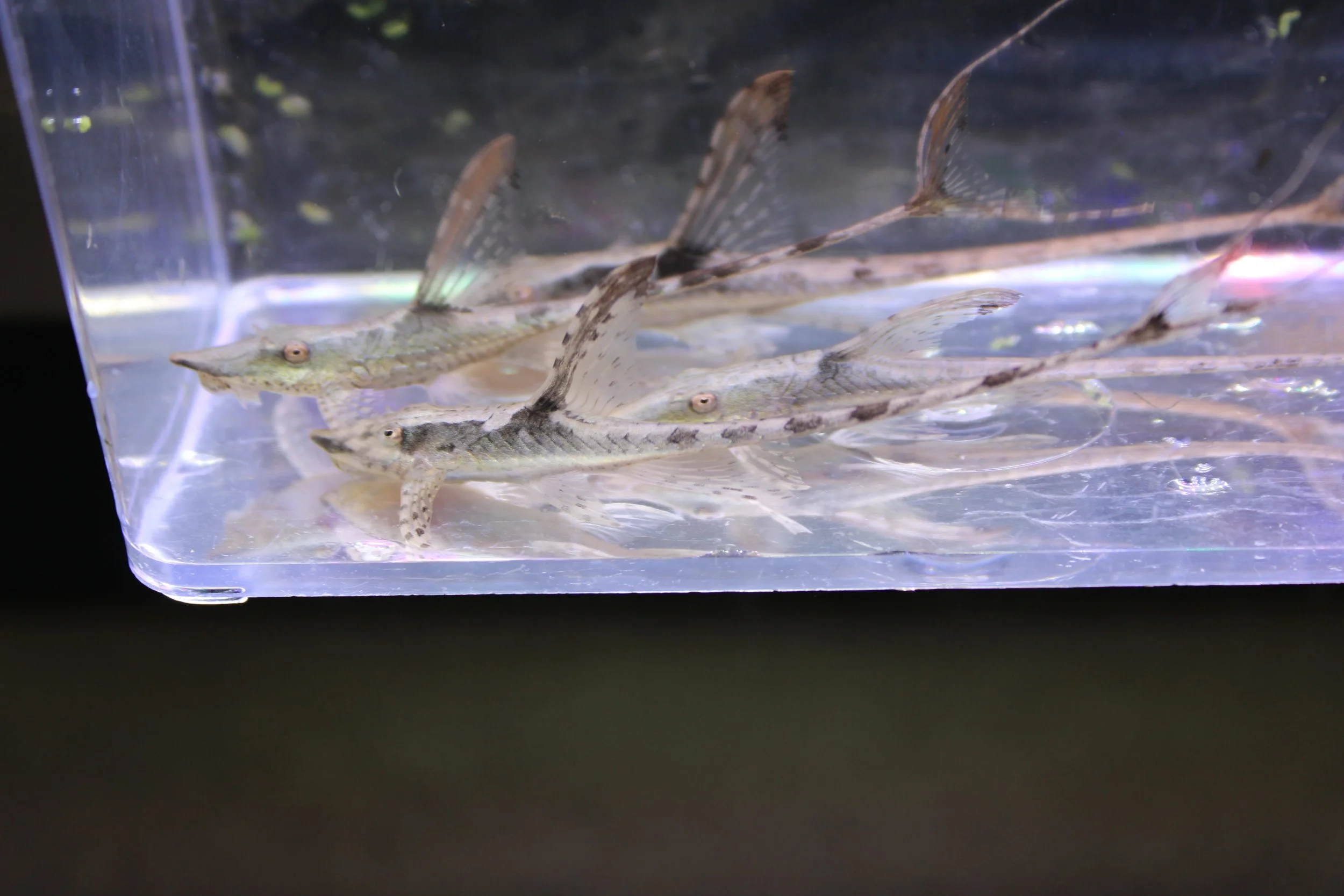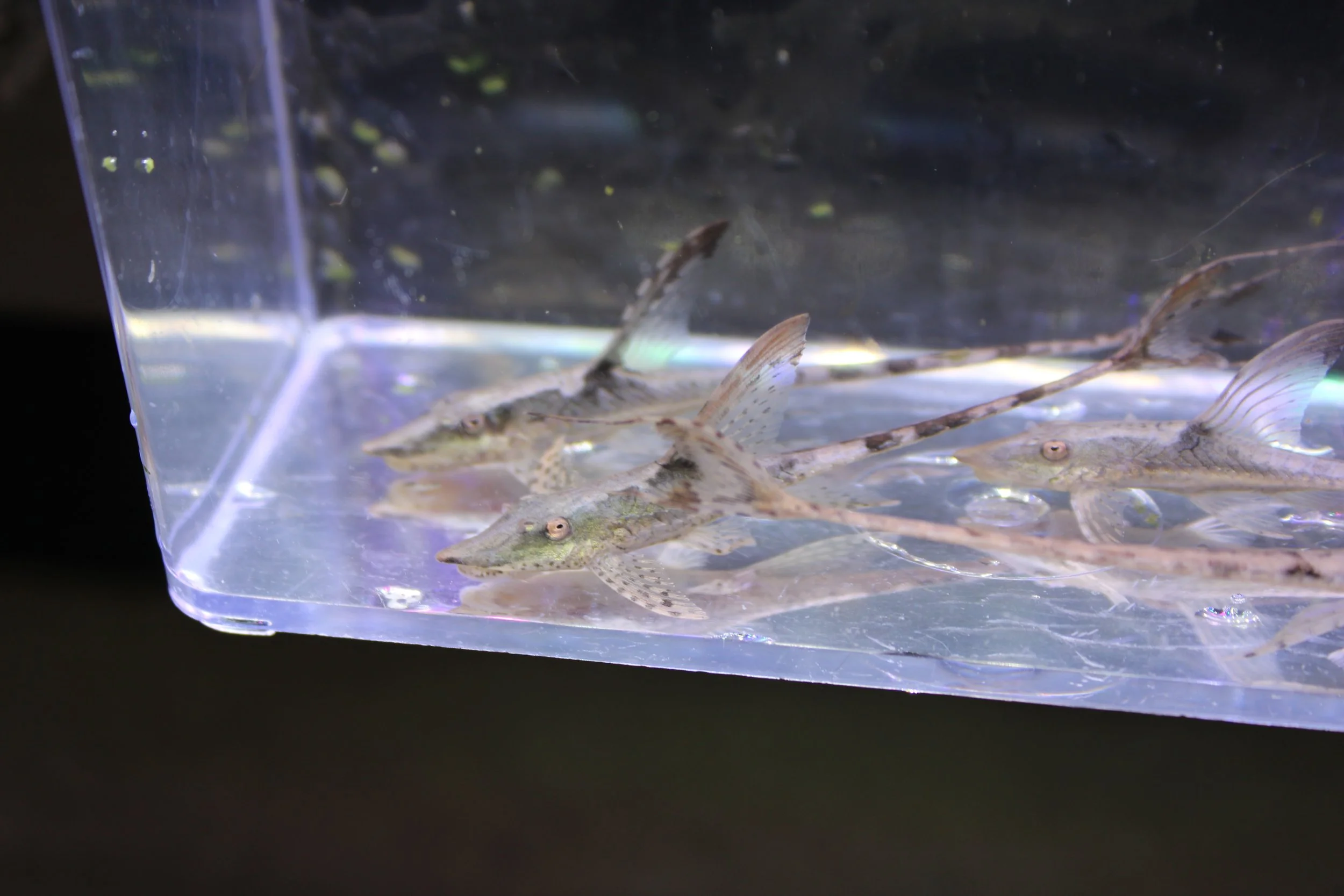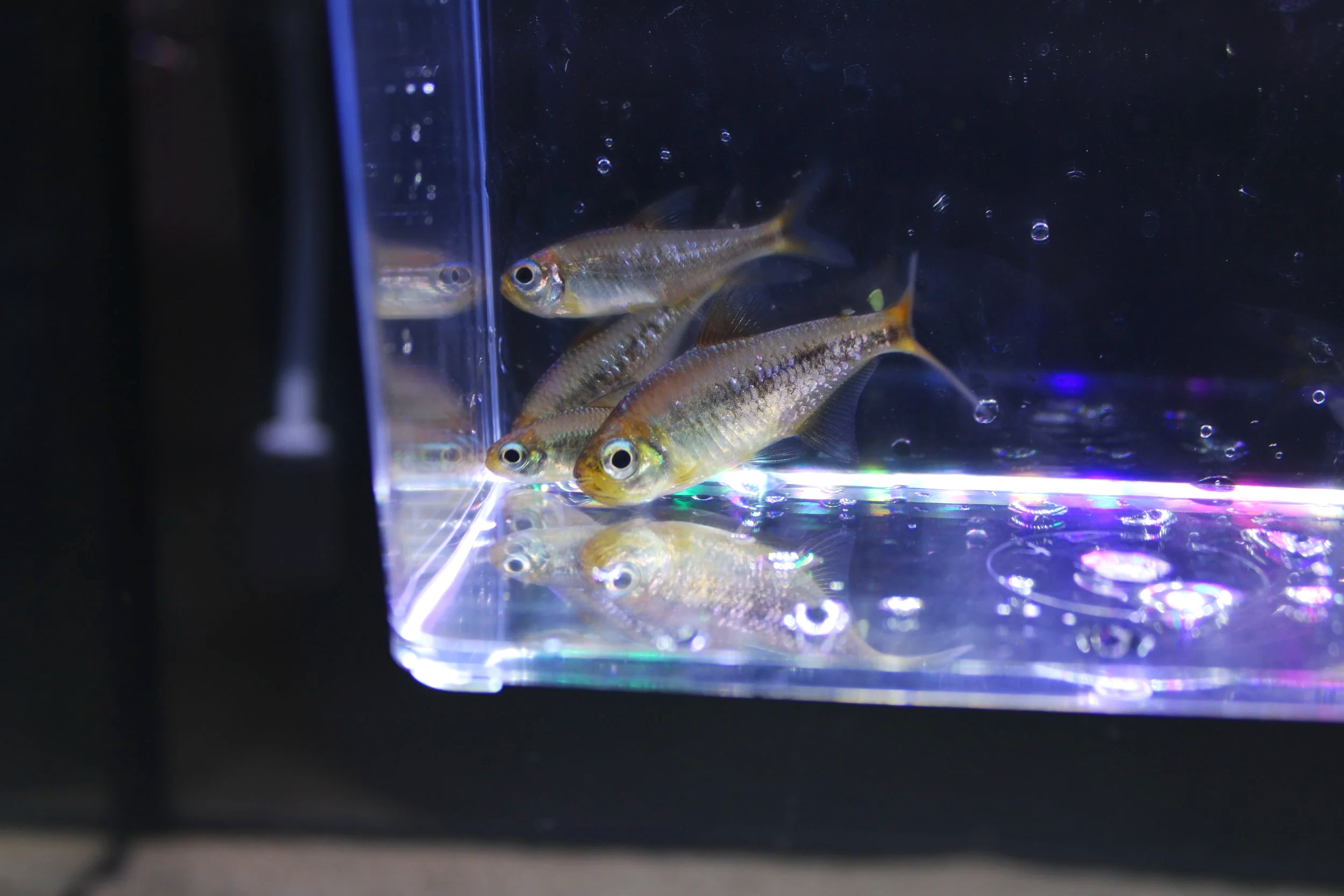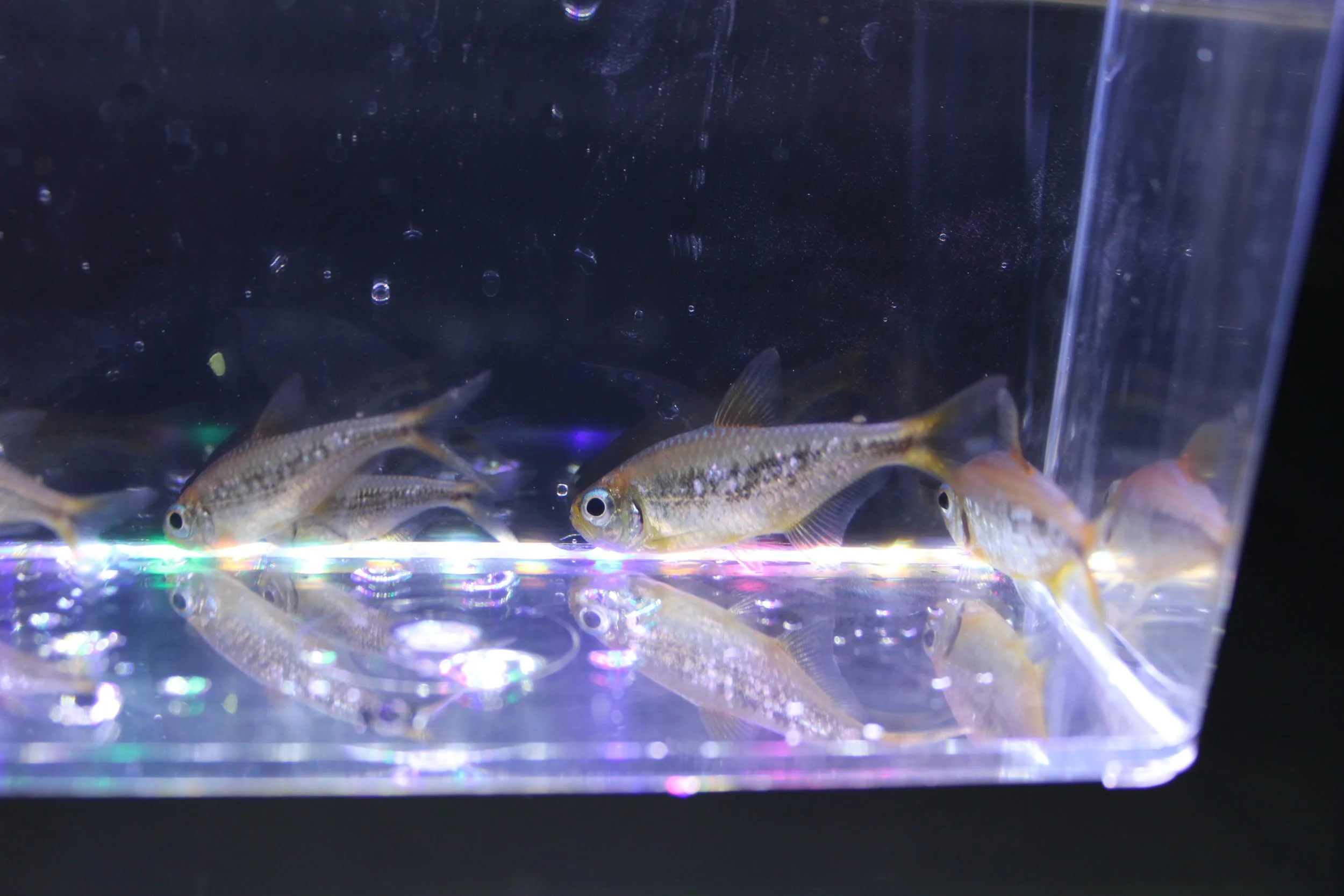 Image 1 of 6
Image 1 of 6

 Image 2 of 6
Image 2 of 6

 Image 3 of 6
Image 3 of 6

 Image 4 of 6
Image 4 of 6

 Image 5 of 6
Image 5 of 6

 Image 6 of 6
Image 6 of 6







Emerald Rasbora
Emerald Rasbora (Microrasbora erythromicron) – Shimmering Nano Fish with Striking Blue-Green Stripes
The Emerald Rasbora, Microrasbora erythromicron, is a beautifully colored nano fish perfect for planted aquariums and peaceful community setups. Known for its vivid metallic green body with bold horizontal blue stripes and a splash of red-orange on its fins, this fish offers both color and grace in a small package.
Endemic to the highland lakes of Myanmar, Emerald Rasboras prefer stable, slightly cooler water and heavily planted environments. Their calm, schooling behavior makes them excellent companions for shrimp and other small, non-aggressive tankmates. When kept in groups of six or more, their natural shoaling instincts shine — creating lively, synchronized movement.
Key Highlights
Scientific Name: Microrasbora erythromicron
Common Name: Emerald Rasbora
Size Shipped: ~0.5–0.75” juveniles
Adult Size: ~0.75–1 inch
Temperament: Peaceful, shy, social
Swimming Level: Mid to lower water column
Schooling: Best kept in groups of 6+
Lifespan: 3–5 years
Origin: Tank-raised (not wild-caught)
Ideal Water Parameters
Temperature: 68°F – 76°F (20°C – 24°C)
pH: 6.5 – 7.5
GH: 4 – 10
KH: 1 – 6
Minimum Tank Size: 10 gallons (larger for groups)
Aquascape: Heavily planted with open swimming areas
Filtration: Gentle flow with high water quality
Why Choose Emerald Rasboras?
✔ Iridescent green and blue body with bold striping
✔ Peaceful and shrimp-safe
✔ Ideal for nano, planted, or blackwater tanks
✔ Schooling behavior adds dynamic motion
✔ Rare and sought-after micro fish
Feeding & Diet
High-quality nano pellets and crushed flakes
Frozen or live foods: baby brine shrimp, daphnia, microworms
Feed 1–2 times daily in small portions
Emerald Rasboras are perfect for aquarists seeking a rare, elegant, and community-friendly species to bring color and activity to smaller tanks. Their glowing hues and shoaling behavior make them a standout in any aquascape.
Emerald Rasbora (Microrasbora erythromicron) – Shimmering Nano Fish with Striking Blue-Green Stripes
The Emerald Rasbora, Microrasbora erythromicron, is a beautifully colored nano fish perfect for planted aquariums and peaceful community setups. Known for its vivid metallic green body with bold horizontal blue stripes and a splash of red-orange on its fins, this fish offers both color and grace in a small package.
Endemic to the highland lakes of Myanmar, Emerald Rasboras prefer stable, slightly cooler water and heavily planted environments. Their calm, schooling behavior makes them excellent companions for shrimp and other small, non-aggressive tankmates. When kept in groups of six or more, their natural shoaling instincts shine — creating lively, synchronized movement.
Key Highlights
Scientific Name: Microrasbora erythromicron
Common Name: Emerald Rasbora
Size Shipped: ~0.5–0.75” juveniles
Adult Size: ~0.75–1 inch
Temperament: Peaceful, shy, social
Swimming Level: Mid to lower water column
Schooling: Best kept in groups of 6+
Lifespan: 3–5 years
Origin: Tank-raised (not wild-caught)
Ideal Water Parameters
Temperature: 68°F – 76°F (20°C – 24°C)
pH: 6.5 – 7.5
GH: 4 – 10
KH: 1 – 6
Minimum Tank Size: 10 gallons (larger for groups)
Aquascape: Heavily planted with open swimming areas
Filtration: Gentle flow with high water quality
Why Choose Emerald Rasboras?
✔ Iridescent green and blue body with bold striping
✔ Peaceful and shrimp-safe
✔ Ideal for nano, planted, or blackwater tanks
✔ Schooling behavior adds dynamic motion
✔ Rare and sought-after micro fish
Feeding & Diet
High-quality nano pellets and crushed flakes
Frozen or live foods: baby brine shrimp, daphnia, microworms
Feed 1–2 times daily in small portions
Emerald Rasboras are perfect for aquarists seeking a rare, elegant, and community-friendly species to bring color and activity to smaller tanks. Their glowing hues and shoaling behavior make them a standout in any aquascape.


